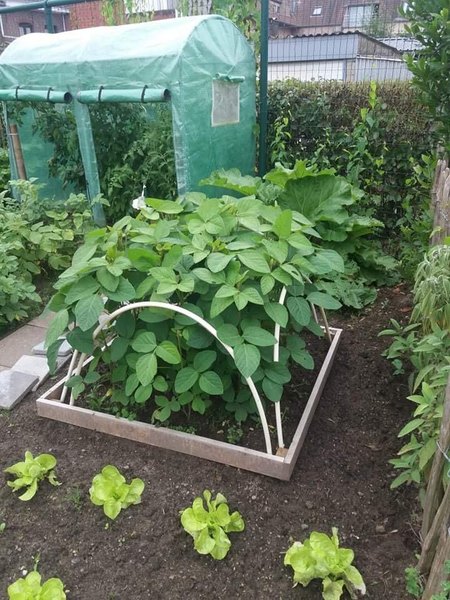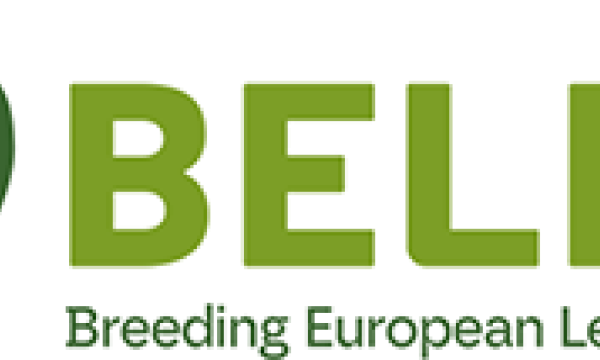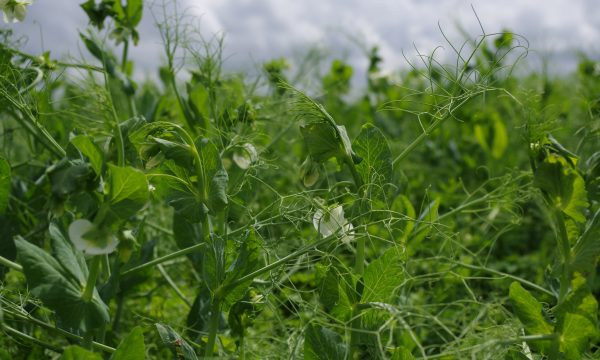Press release Citizen science project ‘Soja in 1000 tuinen’ goes to the lab
In March 2021, Flemish Minister of Agriculture, Innovation and Food Hilde Crevits launched an appeal to find some 1,000 citizen scientists who, like herself, wanted to do hands-on work for science. In the meantime soy plants have been planted in no fewer than 1150 Flemish gardens. In many gardens the soybeans germinated, and in the coming weeks a lot of plants--with all their roots--will be collected, examined and inventoried in the lab. The researchers now hope to find nodules on these roots that are formed spontaneously by soil bacteria. The research project 'Soja in 1000 tuinen' (Soy in 1000 gardens) is a collaboration between VIB, UGent, ILVO, KU Leuven and many volunteers, to map locally present soil bacteria that can help to successfully grow soy in Flanders.

Flemish soil bacteria for Flemish soybeans
Soybeans are one of the most important sources of vegetable protein, but are still mostly imported from South America. To make soybean cultivation profitable in Flanders as well, scientists of VIB, ILVO, UGent and KU Leuven want to build a 'library' of Flemish soil bacteria that can help soybean growth.
The biology of the soybean plant is quite clever: the soybean plant works together with certain types of soil bacteria that can absorb nitrogen from the air. The bacteria pass that nitrogen on to the soy plant in exchange for sugars, via the root nodules that house the bacteria.
With the help of more than 1,000 citizen scientists, including dozens of farmers, spread across Flanders, the researchers are investigating which local bacterial species are good partners for soy.
From the garden…
"In April 2021, we went out to take soil samples in the 1150 participating gardens. In May, the participants went to work themselves. On a defined square meter of garden they sowed, in an identical grid, 60 soybean seeds," says Sofie Goormachtig, from VIB-UGent, who leads the project.
In the meantime, the seeds germinated at different rates and since the end of June the soybeans are blooming here and there. For the participating citizen scientists, such as Martine Vounckx from Scherpenheuvel-Zichem, there is a lot involved: "At regular intervals, we pass on data about germination and flowering or the size and color of the plants via the digital participant portal."
But the participants are also intensively busy in the garden: "It was quite a challenge to protect the young germinating shoots from birds or hungry snails. Fortunately, in my garden all the seeds have grown into beautiful soy plants. The first ones are now starting to bloom."
… to the lab
About five soy plants from each garden will find their way to the lab in Ghent. It is very important that the entire root system - including any root nodules - is taken along.
Lena Vlaminck, soy researcher at VIB: "Now we are starting in the lab, with a whole team, to make a careful inventory of the soil bacteria that we find in and around the roots of the soy plants. In the coming weeks we will be working hard every day to process the 'fresh' plant material in the lab. There, a whole team is ready to analyze and inventory both the plants and their root systems."
Minister Hilde Crevits, who is not only a guardian minister but also participates in the project herself, is already looking forward to the results: "Sustainable production and consumption of proteins is a top priority for Flanders, but in addition, the cooperation between thousands of citizens and scientists from our Flemish research centers and universities is so valuable. From allotments to schools, experienced gardeners and beginners: a lot of participants share their experiences and get a different perspective on sustainable agriculture and contribute very actively to research."
-
'Soy in 1000 Gardens' is a citizen science project in which researchers from VIB, ILVO, UGent and KU Leuven work with 1000 citizens. It is funded within the VIB Grand Challenges program, which supports research projects that can bring direct added value to society in the short term. More information via sojain1000tuinen.be .


